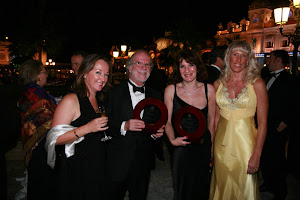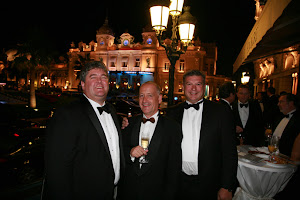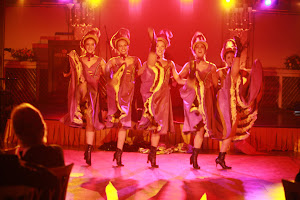Karen Jones interviews David Fryer, BigHand CEO, who was previously Managing Partner at law firm Taylor Walton
Buyout mania has hit legal tech in the last few years with tech vendors being snapped up as though hot bargains in a sale at Harrods. But one management team which consisted Stephen Thompson and Gordon McAlpine who sold their interest in, BigHand Digital Dictation weren’t devoured by hungry venture capital shoppers: it was taken over by it’s own staff.
In a deal that took more than a year to complete, the new BigHand team and their backer (LDC) took ownership of 400 clients, a 57 percent of digital dictation market share and annual sales of over £7million. And from July 2006, they really had just one job – ‘don’t drop the baton.’ The buyout team, which consists David Fryer, ex managing partner at law firm Taylor Walton as Chief Executive Officer, Simon Lewis, who developed the software as Development Director, Steve Butterworth who now continues as Sales Director and similarly Jonathan Carter – Client Solutions Director, who all have equal shares. LDC say they have a ‘significant share holding.’
Although sheer speculation and figures are private, I estimate the deal must have looked something like 40% management team to 60% LDC with Gordon and Stephen Thompson leaving with a couple of million each. As David Fryer, who attended law college in Chester, comments. “It was a major negotiation and fortunately we stayed on very good terms with both Gordon and Stephen.” Which does say something about the four staff who undertook the MBO: it is rare to be anything but exhausted and resigned to your fate after a deal of this magnitude. The champagne would have flowed when final documents were signed.
Of all the vendors in the legal tech space, BigHand is one the success stories of the legal sector. Founded in 1996, the then founders Stephen and Gordon had done well and started toying with the idea of selling up in around 2004. They were fortunate enough to have David Fryer in their sights. David, who was a phenomenally successful managing partner at Taylor Walton, who sit below the Top 100 on the law firm charts, had got the firm ship shape and was looking for a new challenge. In 2004, David took a leap of faith, resigned and awaited fate’s calling card. It arrived in the shape of Stephen and Gordon.
“I took Stephens role really” says David, who in his managing partner role had taken on the technology purchasing, amongst others projects and had got a firm handle on the issues. “I joined to run the company and processes and although I only realised later on, this allowed Stephen to get their MBO process underway.”
Gordon and Stephen were advised to leave the deal ‘clean’ in other words walk away once it was done, which David, who is originally from Grantham in Lincolnshire,
Says. “Was pretty easy. I was doing Stephen’s job and Gordon dealt with the top twenty law firms in the market which meant relatively little selling to do and it wasn’t difficult for someone new to take over.”
David takes us back in history to show us pretty much how everything evolves: by seizing opportunity. “When the company started out it was focused on speech recognition and called VoiceWrite.” He says. “It was nothing to do with digital dictation.” Although he wasn’t involved, it sounds like it was a bit of a thankless task selling the concept. He says that a typical pilot of ten staff had similar results each time. “One would love it, eight couldn’t wait to stop using it and one would have muddled through using it because they had been told to by the boss.” We both laugh but we have the benefit of hindsight and BigHand’s obvious success to erase what must have been a difficult early start for the company. BigHand got no roll outs so in ’99 frustrated they did a review, spoke to clients and clever old Simon Lewis sat down and wrote the first version of ‘Total Speech’ which at first blended speech and digital dictation.” It didn’t take long for BigHand to scrub the speech and focus 100% percent on digital dictation and as they say the rest is history: Total Speech 2 launched as pure digital dictation. “Workflow is the clever bit though.” Says David. “It’s all so much better than analogue because work is visible. It stores in Outlook so support staff can look at a screen and see work needs doing and what work has been sent around to other staff.”
David says initially secretaries were wary of the software and suspected they would lose their jobs but in reality, late nights getting urgent reports out became a thing of the past because work was suddenly available for everyone to see. Gone were the days where you didn’t dare ask a stroppy support person to help. “It also highlights how many minutes of work are on each item so support staff can choose items dependent on how much time they have available.”
It sounds like an ideal system to start causing some mayhem with secretaries in terms of how much work they are doing but David squashes any attempts to see BigHand software as a measurement tool. “Some instructions might be 2mins in size but have a whole days work on them. When we asked clients about this, they said the system mirrored what they knew already in terms of how staff were working.”
Developments in digital dictation now include Blackberry integration and in the future David sees the return of speech and increasingly using their software over the telephone. Already you can speak instructions into the BlackBerry, click send and it sits in the workflow queue ready for assistants back at the mother ship to action or type. The server has a 4 digit passcode but that is the only block between fee earners and getting work done.
Which is also some good news for smaller firms (and increasingly bad news for device vendors), the move to the Blackberry (BigHand also works on Windows mobile) has meant it isn’t essential to buy devices anymore, Dictation can happen on the Blackberry with a press and a ping into workflow. “It’s really for more complicated dictation that devices will be needed. Which is something to do with the breadth of legal language. Apparently lawyers use something like 30,000 words compared to the medical profession who use 5,000. BigHand charge an additional fee for mobile use.
The next phase for BigHand is ‘unleashing into the public sector’. “Property and accountancy are also looking promising areas.” Says David. Surprisingly accountants dictate a lot less than lawyers do with a 80/50 ratio and private client lawyers dictate the most.
There are eighteen suppliers in the market but many offerings are connected to practice management software so may not be so obvious. Top choices it seems are BigHand, Winscribe and nFlow with BigHand and Winscribe having a similar pricing policy. “There is plenty of market out there for everyone and we don’t talk about competition mainly because we believe our software is better, easier to put in and we are fast at doing it.” Says David.
So its all good news so far, I wondered what can go wrong? David is honest and upfront. “Whilst every organisation should prepare to become obsolete, we do see some resistance from firms who have lawyers with good typing skills. They can’t see why they need it. Fortunately we are seeing firms who have made that kind of decision in the past to reduce overheads come back to us. It’s an error to think its all just about typing. It’s not, it’s about work and instructions flowing easily through the system. A large part of dictation is instructions and in a busy, volume practice this software eases work burdens.” As well as this David thinks a move to proprietary software would be a wrong turn. “Buyers are choosing and they want software to do everything easily. Also areas like images could take us down the wrong path. Its easy to get distracted.” David thinks SOA (service orientated architecture) has been the successful route for them. “Anyone can access us through SharePoint and we work with big players like Metastorm, Visualfiles, Interwoven and OpenText, which is where most of the demand is. It’s good software and people like to use it.”
BigHand have opened in the USA and have found a fresh, bountiful market. “Analogue use was plentiful in its day and for some reason, digital dictation just didn’t get on the radar for firms, they went from analogue to typing with nothing in the middle. Says David. “The US is well ahead of the legal market on its own issues like VOIP because of the size of the country and e-discovery because of litigation but they are behind on these types of software because they assumed it would die out.” The whole team are spending a lot of time pinging back and forward to the US and Steve Butterworth the sales director has now relocated there. ©
www.bighand.com
This first appeared in http://www.citytechmag.com/
Thursday, 29 November 2007
David Fryer, CEO, BigHand digital dictation tells us how things are going one year after the management buyout
Subscribe to:
Post Comments (Atom)





3 comments:
BigHand surely has some very interesting software for companies to facilitate work, but I feel as an organisation they are not good. If you visit them you can see they recruit only whites and they believe color of the skin is more important than competency.
So surely no BigHand products for me.
Your readers may also be interested in a related solution for the recording of meetings - the Acappella Conference Audio Recorder and Playback Assistant.
Acappella reduces the time to produce a transcript and increases its quality by telling the transcriptionist while they are typing, the name of the person speaking.
http://www.acappella.com.au
They may also want to visit this blog on selecting a digital dictation solution.
http://audiorecorder.wordpress.com/
My cousin recommended this blog and she was totally right keep up the fantastic work!
digitaldictation
Post a Comment